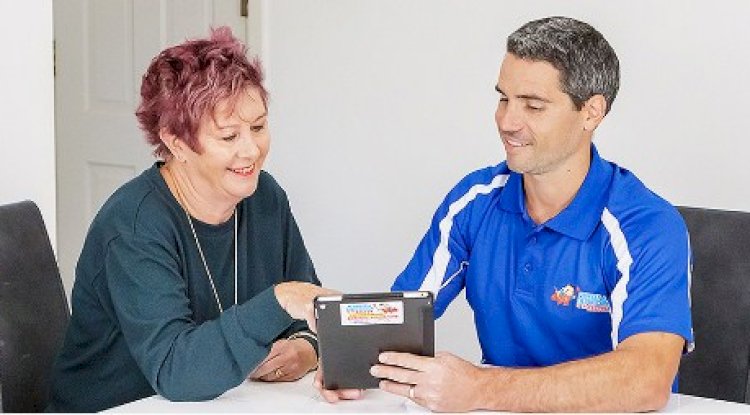How SEO Helped Small Businesses Survive during COVID-19
The COVID-19 pandemic put many businesses at stake. The effect has fallen on online mediums as well. Many businesses have shifted to digital methods. Digital marketers have been implementing search engine optimisation (SEO) to recover from the situation.

What is SEO?
Search engine optimisation, or SEO, is the process of raising the number and quality of traffic to a website. SEO uses tools such as meta tags, keywords, and backlinks to improve a site’s content and rankings.
SEO aims to focus on increasing the quantity of website traffic. This is done through numerous strategies like link building, article marketing, social bookmarking, directory submission, blogs, forums, creating SEO friendly content for your website. All these increase the chances of your content reaching your target audience and potential customers.
SEO’s role in saving businesses
Even during the ongoing pandemic, many businesses still generate leads and make a profit with the help of SEO. Here are some ways SEO rescued businesses from the effect of the pandemic:
Develops Distinct Content
Blog posting allows many businesses to promote their content to fit different choices. They also use various mediums to attract traffic to their websites.
Websites can also help other website owners increase traffic. This can be done by adding relevant, high-quality articles with informative content. Website owners can also showcase their services through blog posts and forums.
Local SEO Improves Visibility Inside Local Area
SEO is essential for your site to show in organic search results. Local SEO is also equally important. It’s important for people in your local area to know about your business so that you earn more revenue. You can use Google’s local business resources so that potential customers can find you when they search for products/services in your area. You can check your search engine results page (SERP) to see how your site performs in searches for a local business in your area. To optimise your site so that it appears in the searches, add relevant keywords and meta content. Meta content is needed in a website’s back-end code which tells search engines what your site is about.
Advantages of SEO:
-
SEO is a cost-effective, high-ROI strategy
-
Organic search drives high traffic
-
Local search is beneficial as in lockdown people look for products closer to home.
-
People turn to search engines in this time of uncertainty
-
COVID-19 search trends create new opportunities for many businesses
SEO provides a medium for brands that want to have an online presence while cutting down their ad spend, which is a common strategy during financial crises. Paid advertisements stop working as soon as you pause ad spend, while the organic search continues to keep your business visible and help you reach customers during tough times.
This is applicable to businesses of all sizes that can use SEO to help them recover during economic losses. Organic search also creates an important online platform for businesses that had to shut down during lockdown.
Increase in local searches
According to many researches, most people used local businesses more since the lockdown began. Many consumers say a major reason for their interest in local businesses is their will to support them during the crisis – not only due to the travel restrictions during the lockdown.
During the pandemic, local search was the important link between people at home and the businesses in their area. For businesses that could safely stay open or operate with limited services such as takeaway and delivery services, local search was a lifesaver during the lockdown.
Google came up with advice for local businesses and introduced new features for local searches, such as Google My Business and Google Maps, to help businesses continue to operate in the best way they could. Google enabled businesses to add various features to show that takeaways, deliveries, no-contact deliveries or pickups are available.
Initiatives like this helped businesses benefit from the increase in local searches and connect to users.
Increased Traffic Equity
SEO is a continuous strategy that evolves but stays. So, investing in SEO during the tough times can help businesses build outstanding traffic equity. Tasks such as relevant keyword research, developing ideas about the relevant niches and making a digital move are expected to bring high ROI. The best strategy to get SEO traffic equity is by establishing short-term and long-term goals. Long SEO friendly website content and keyword specific insights are some of the better tools to attract website traffic.
Higher UX
The user experience should be highly prioritised. So, the best SEO practice for getting it is to choose responsive themes and make sure that the interface is synchronised with user requirements. Every website element- design to UX, on-page content and optimisation, play a crucial role in increasing the outreach of the business.
A well-designed high UX website has a better chance of ranking higher. The concept of user experience is also applicable to mobile interfaces and websites with well-managed mobile apps, usually ranked better during covid-19. SEO friendly websites with Improved UX decreased bounce rates and improved the time spent on the websites, thus raising the chances of more revenue.
Higher Outreach
SEO is an effective solution for online businesses. For businesses with a physical presence, local SEO can be an effective strategy to adopt. During the pandemic, Individuals refrained from travelling outside their areas. Therefore, businesses that concentrated on local SEO were more identifiable as local businesses.
This approach brought relevant local news, local keywords, reviews, and mobile optimization strategies during the pandemic period. Moreover, local businesses that exported essential commodities to foreign countries or provided online services, global SEO generated more revenue. The strategies implemented included website optimisation, UX optimisation, keyword optimisation, backlinks, etc.
Share
What's Your Reaction?
 Like
1
Like
1
 Dislike
0
Dislike
0
 Love
0
Love
0
 Funny
0
Funny
0
 Angry
0
Angry
0
 Sad
0
Sad
0
 Wow
0
Wow
0















